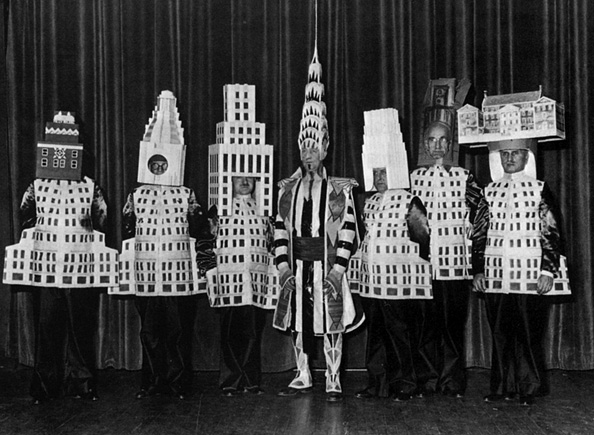|
There's an oft-cited quotation within the circles of popular music. It goes like this: "Writing about music is like dancing about architecture." It's a succinct summation of the challenge of music criticism — of experiencing the ineffable magic of any art and then using mere words to pin down all that smoke. Throughout my 20 years getting paid to do just that, I recognized the futility of the activity (while counting my lucky stars). The quote — attributed to a wide variety of sources, though it was most likely a Martin Mull original, according to the fearless and tireless Quote Investigator — usually is bandied about by musicians (commonly by those who have been on the receiving end of some sharp criticism) with the intent of belittling music critics. They wield the statement in order to point out how worthless is the critical pursuit, how beneath their attention. They could be right. But I'm newly involved in plumbing the depths of performance studies, and it's lead to a not-small revelation about that quotation's very metaphor. Specifically, performance-studies scholar Dwight Conquergood, a Chicago ethnographer who helped pioneer the study of his field at Northwestern, lays out a particular vision of performance — its neglected importance within anthropology, how it contributes to knowledge production, in particular how it gives voice and understanding to marginalized subjects — in "Performance Studies: Interventions and Radical Research," identifying "two different domains of knowledge": basically, the text and the tale. It's yet another binary in social science: the account of record and the understood feelings. His claim is that science remains troublingly dependent on texts — on what can be explained through writing (even if that means taking something non-linguistic and forcing a text out of it, which Conquergood claims is the case of Clifford Geertz's world-as-text perspective) — and thus is missing the vast majority of human knowledge.
The Taoist in me loves this, applauds noisily — the research that can be written is not the eternal research, etc. But the writer part of me understands this completely, too. Everything I've ever penned has been merely the closest approximation to what I can say linguistically is something resembling what I understand (with and without language) to be the truth. Words, of course, possess relentless powers, and in a performative aspect are crucial to our legal society ("We the jury find the accused: guilty!") and even religious experience ("Let us pray ..."). Goffman, Mead — they're all correct in trumpeting the importance of language to an understanding of self, even it may not be everything. But anyone who's fallen in love knows exactly the location of the threshold at which language must be left behind, the mind beyond words that surpasseth all human (linguistic) understanding. Karen Barad: "Language has been granted too much power." Amen, sister. In fact, we know many things this way, and sometimes embodying the process of expression is the only way to at least enhance communication of that knowledge. I am uncomfortable studying performance, because in that process I am occasionally asked to perform. I've called myself a writer for 30 years now — since back when I was trying to decide between journalistic influences, between the deeply embodied methodology of Hunter S. Thompson or the more removed textual toying of Tom Wolfe — and I find myself chafing at anything that attempts to remove me from the comparatively safe and cozy paradigm of written expression. But even my last blog post here was about just this kind of embodied experience: I wanted to visit the ICT labs because I had written about some of the work there — and my understanding was incomplete. I desired to see the systems with my own eyes, touch them; stepping inside one of the Light Stages provided me with a situated understanding of the processes that I did not previously possess. So when, while reading Conquergood, I came back to that old bon mot — "Writing about music is like dancing about architecture" — I saw it from the other end for the first time: Hey, you know, dancing about architecture could be highly informative and really fucking cool!
0 Comments
Leave a Reply. |
this blahg
I'm THOMAS CONNER, Ph.D. in Communication & STS, and a longtime culture journalist. Categories
All
Archives
June 2024
|


 RSS Feed
RSS Feed